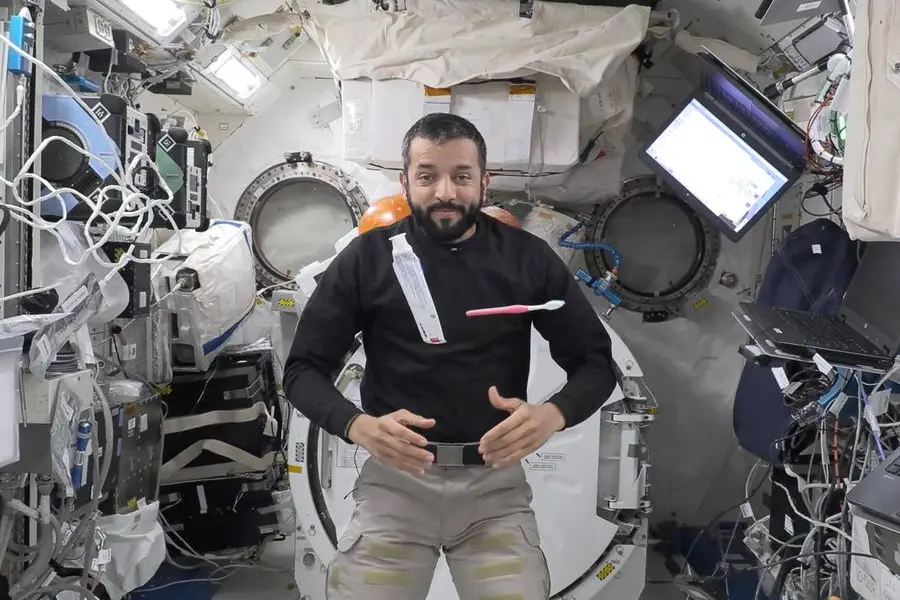PHOTO
DUBAI - Emirati Astronaut Sultan AlNeyadi's mission will continue after his return to Earth to benefit from the scientific experiments he participated in during his six-month mission on board the International Space Station (ISS), according to Mohammed bin Rashid Space Centre (MBRSC).
During a virtual news conference today, coinciding with the undocking of the Dragon Spacecraft from the ISS, Salem Humaid AlMarri, Director-General of MBRSC, stated that Sultan AlNeyadi, along with his Crew-6 crewmates, began their journey back to Earth, adding that their spacecraft is projected to touchdown off the coast of Tampa, Florida in the Gulf of Mexico on Monday morning,
AlMarri explained that one of the MBRSC's teams will focus on the safety of the astronauts and their medical rehabilitation to return to normality, which will take a few weeks. He noted that another team will focus on the scientific experiments, while the administrative team will focus on the nature of the mission, administrative and organisational matters, as well as handling discussions with various parties.
Following the undocking, if necessary, a series of orbit-lowering manoeuvres, known as phasing burns, will be executed on the spacecraft to align its ground track with the targeted landing location. Before initiating the deorbit burn, the flight computer will jettison the spacecraft's trunk, a step crucial for reducing its mass and conserving propellant. This will pave the way for the spacecraft's deorbit burn, scheduled to last for 12 minutes.
Upon completion, as the spacecraft re-enters Earth’s atmosphere, it will encounter significant heating and drag, effectively reducing its velocity to a safe point suitable for parachute deployment. At an altitude of 18,000 feet, two drogue parachutes will be deployed, quickly followed by the release of four main parachutes at approximately 6,500 feet. Under the steady guidance of these four main parachutes, the spacecraft is projected to make a gentle splashdown at a speed of 25 feet per second off the coast of Tampa, Florida in the Gulf of Mexico on September 4.
The UAE Astronaut Programme is one of the projects managed by MBRSC under the UAE’s National Space Programme and funded by the ICT Fund of the Telecommunications and Digital Government Regulatory Authority (TDRA), which aims to support research and development in the ICT sector in the UAE and promote the country’s integration on the global stage.





















